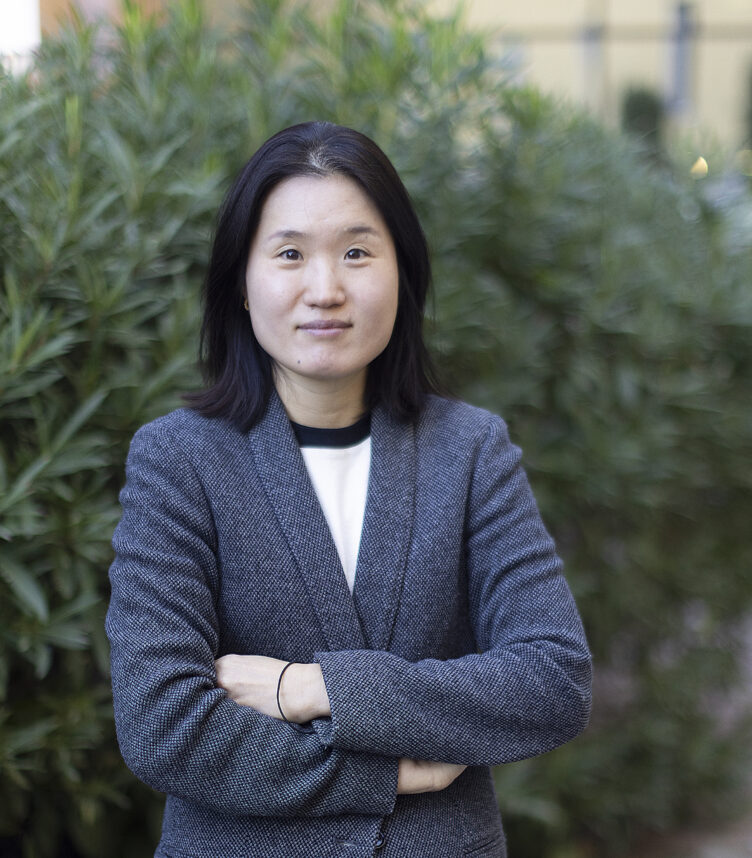This website uses cookies so that we can provide you with the best user experience possible. Cookie information is stored in your browser and performs functions such as recognising you when you return to our website and helping our team to understand which sections of the website you find most interesting and useful.
 Solip Park. Credit: Laura M. Lombardía. CNIO.
Solip Park. Credit: Laura M. Lombardía. CNIO.
A study carried out at CNIO in collaboration with Korean researchers proposes a new type of cancer predisposition genes and suggests further mechanisms of action for those already known
Samples from persons with mutations causing the studied inherited diseases showed more potentially tumor-causing mutations than those from healthy individuals
They have discovered the relationship of the PAH gene, known to be involved in a protein assimilation disorder, with lung and liver cancers
About one hundred so-called cancer predisposition genes (CPGs) are known. The probability of developing cancer is greater in individuals who inherit certain altered variants of one of these genes. “But these 100 genes account for only about 10% of cancer cases. The vast majority of other cases may be related to mutations we don’t know about,” explains Solip Park, head of the Computational Cancer Genomics Group at the Spanish National Cancer Research Center (CNIO). Finding these other altered variants can contribute to early detection and the development of treatments to counteract their effect.
To discover them, Park decided to narrow the search to a group with an easily identifiable genetic profile: people carrying genes that, when altered, cause an inherited disease. These are monogenic diseases (caused by the alteration of a single gene), such as muscular dystrophy or Gaucher disease, in which fat accumulates in various cells.
Park, along with collaborators from several institutions in Seoul (South Korea), has discovered 103 genes in which single-gene disease-causing alterations often coexist with other cancer-predisposing alterations.
The study verified that people with single-gene inherited disease mutations in these 103 genes also had more mutations implicated in cancer than the control group of healthy individuals. While some of these mutations are associated with specific types of cancer, such as renal cell carcinoma, B-cell non-Hodgkin’s lymphoma, breast adenocarcinoma and medulloblastoma; others relate to a general cancer susceptibility.
Thus, the authors propose in their study published in Genome Medicine that “these 103 genes whose mutations can cause Mendelian diseases may also behave as cancer predisposition genes,” says Park.
Novel mechanisms of action in cancer predisposition genes
In their research they also analyze how defective variants of these genes promote tumor progression and cause other diseases, and suggest various mechanisms of action, such as distortions of cellular metabolism or immune response. Some of these mechanisms had not been previously considered in cancer, so the authors stress the need to study them in greater depth.
They have focused particularly on the PAH gene – known because some of its mutations cause the rare inherited disease phenylketonuria, which prevents the assimilation of proteins and aspartame. They selected it because it had the largest number of variants likely to give rise to several types of cancer and have discovered its relationship with squamous cell carcinoma of the lung, tumors of the liver tissue, as well as with other diseases and growth delay.
“Our study shows for the first time how genes associated with a variety of monogenic diseases can increase cancer risk. In addition, it provides new mechanisms of tumorigenesis previously unknown, by new cancer predisposition genes,” says Solip Park.
Thus, the work suggests the need for further research into the role in cancer of these 103 genes, whose clinical relevance was until now limited to hereditary diseases other than cancer. The relationship of each variant to specific cancer types needs still to be explored.
However, the results point to the desirability of people carrying the alterations that cause monogenic inherited diseases to follow any cancer prevention program already available.
Reference article
Song, S., Koh, Y., Kim, S. et al. “Systematic analysis of Mendelian disease-associated gene variants reveals new classes of cancer-predisposing genes”. Genome Med. 15, 107 (2023).
DOI: https://doi.org/10.1186/s13073-023-01252-w
